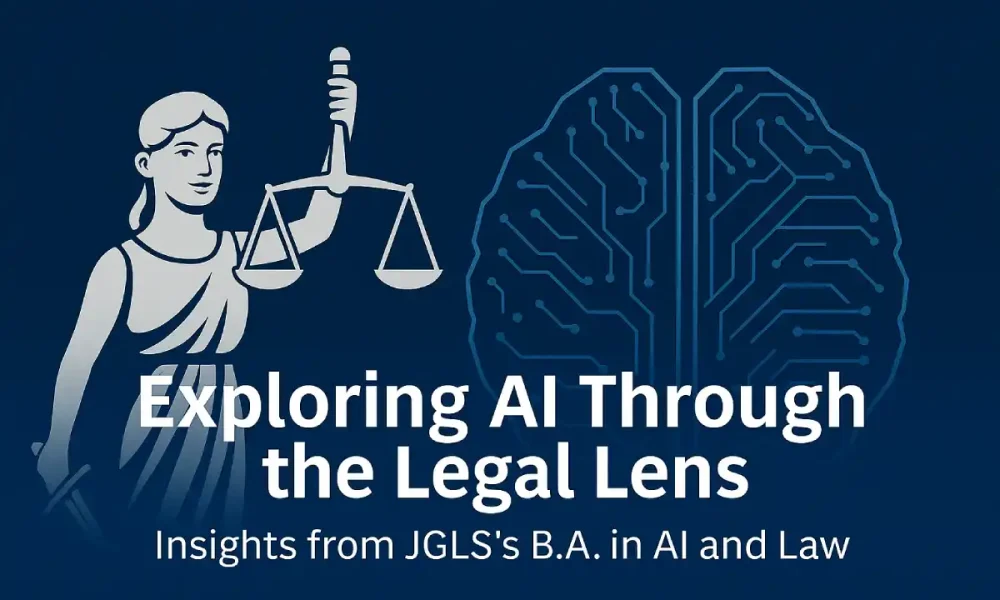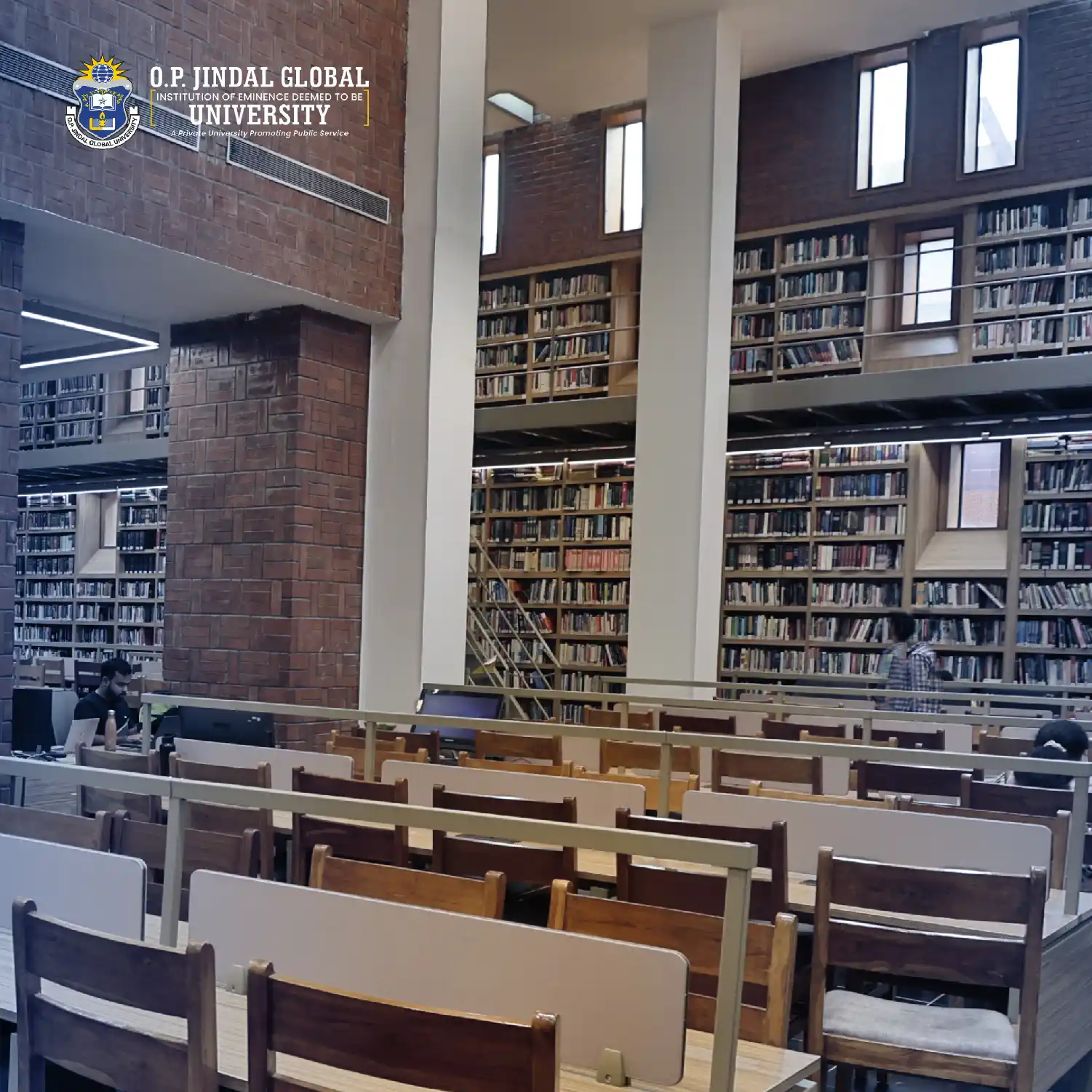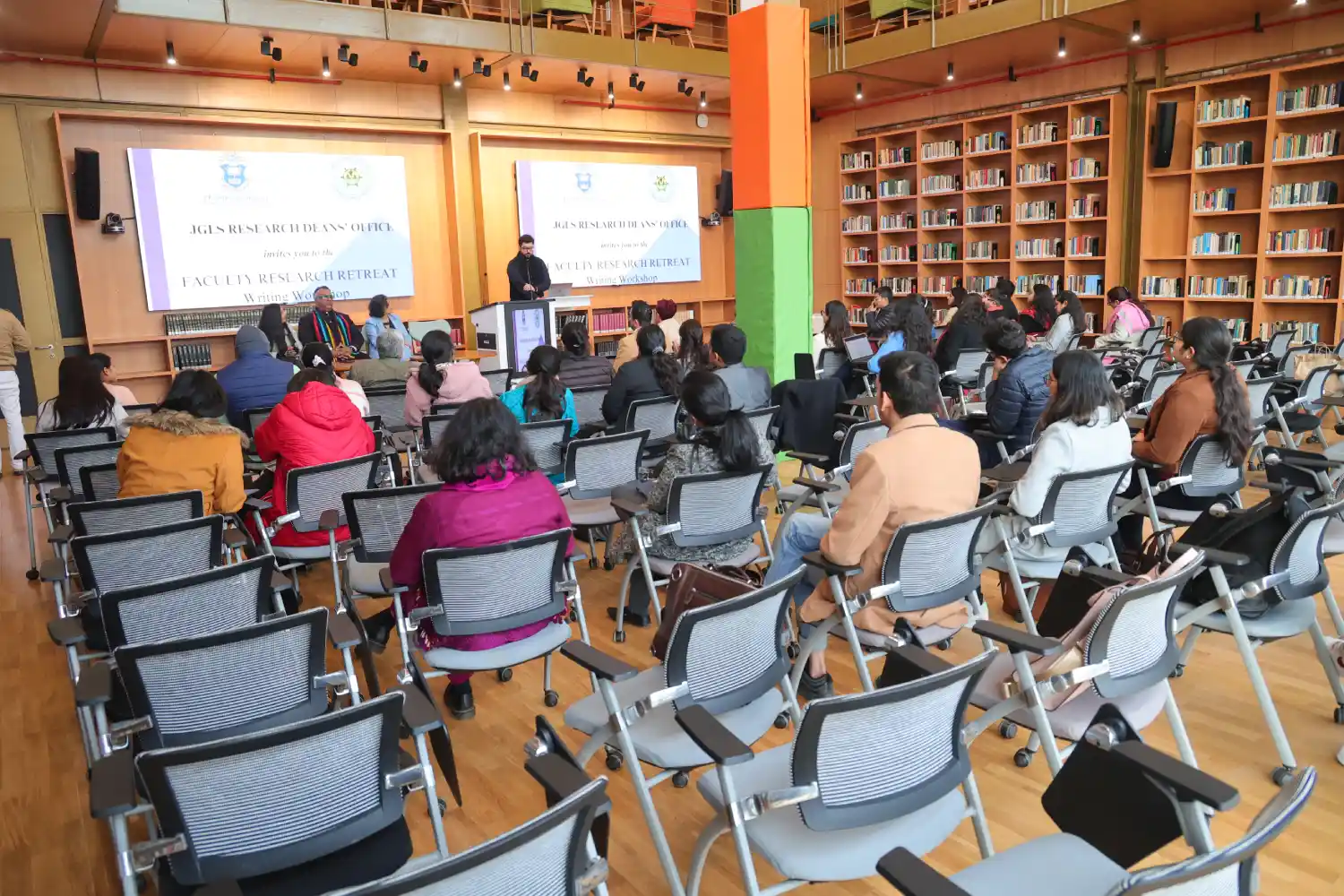Introduction
Artificial Intelligence (AI) has rapidly transformed various sectors across the globe, and the legal system is no exception. While the application of AI in legal studies remains in its nascent stages, it has already proven to be highly beneficial in several respects. At a fundamental level, AI demonstrates superior speed and efficiency in sourcing information from across the web, significantly streamlining the process of legal research.
The BA in AI and Law course offered by Jindal Global Law School (JGLS) seeks to fill the gap between emerging technologies and the legal domain. It focuses on understanding the practical applications of AI and overseeing the associated legal considerations to contribute positively to society.
Beyond information retrieval, generative AI has shown promise across a wide range of industries and professions. The AI and Law programme aims to explore the legal challenges posed by such technologies and to identify areas where legislative reform may be necessary.
Various Aspects Of AI From A Legal Perspective
Once perceived as a threat to human productivity, AI has become more than a friend and a powerful tool in enhancing human expertise when used accordingly. From power automation to research to even analysis, AI has many talents that can significantly improve the workflow and extend the services provided by a legal firm.
To view AI under a legal lens, it is important to understand how the system works. Also important is to know what the legal framework is for engaging with multiple AI tools to your advantage and avoiding legal troubles. By understanding the algorithm and functions of AI tools, and the laws that could impact the overall outcome, you can stay ahead and not miss out on any new developments.
How is AI Changing the Legal World?
The undeniable power of AI tools has significantly affected the legal world, some for the better and some, definitely, for the worst. Nevertheless, using the power of AI has only proven to make legal work much faster to comprehend and easier to execute. The entire legal system has been shaken by the introduction of AI, calling for a reconsideration of virtual laws.
From the automation of basic paperwork and repetitive tasks to thorough research and analysis for better decision-making, AI is capable of performing massive data-driven activities in a few minutes or so. In recent years, many legal firms have invested in establishing an internal team to make use of various AI tools and practice AI law to assist clients.
What Is There To Learn From The B.A. in AI & Law Programme At JGLS?
As the legal world grapples with the various aspects and functions of Artificial Intelligence, AI law in India is also making a significant impact at a rapid pace. The 3-year B.A. in AI & Law programme at Jindal Global Law School sheds extensive light on the effects of AI in Business Communications, Intellectual Property, Legal Profession, Academic Writing, Data Privacy, Commercial Markets, Global Problems, Art & Entertainment, Politics, and so on.
AI & Law are combined on a few ethical codes that encourage individuals to know the context by using the knowledge of law. The ethical boundaries and regulations that create the virtual laws are critical for technology to be used under a moral and legal code of conduct. The AI and Law course offered at Jindal Global Law School initiates the first step to recognising the potential of AI tools and the laws that govern their lawful usage.
FAQ
Applicants willing to enrol in the AI and Law course are primarily required to complete their 10+2 schooling and examinations under any stream chosen by them. This may include standard practices such as Commerce, Science, or Arts, as long as they have the passing certification from a recognised board.
A national-level entrance exam is necessary for all applicants to take admission for the B.A. in AI & Law degree course at the Jindal Global Law School. They will be needed to appear for one of the following exams: LNAT-UK, JSAT-Law, CLAT-UG, CUET-UG. The scores obtained in the entrance examination will decide your fate in admission.
The B.A. in AI & Law programme is intended to help students of legal studies develop an understanding of AI’s societal impact and how its usage can be made better with law. The goal is to understand the functioning of an AI environment, the knowledge of various tools, and the legal ways to use them for a better outcome.
Apart from the theoretical understanding of AI & Law, JGLS inspires students to take up internships to create an interesting portfolio early on in their career. They will also be encouraged to attend workshops that further enhance their skills and help them develop contacts for future purposes.
The AI and Law course is a nuanced study of Artificial Intelligence and its lawful application, establishing an ethical evaluation based on sociology. The degree makes you competent to apply in research centres, ethics committees, laws and policy institutions, government bodies, AI firms, tech companies, international organisations and be part of future projects based on AI & Law.
Source Links
- https://legal.thomsonreuters.com/blog/the-future-of-professionals-how-ai-is-reshaping-legal-work/
- https://pro.bloomberglaw.com/insights/technology/how-is-ai-changing-the-legal-profession/#how-technology-is-changing-the-legal-field
- https://blog.ipleaders.in/impact-artificial-intelligence-legal-system/





